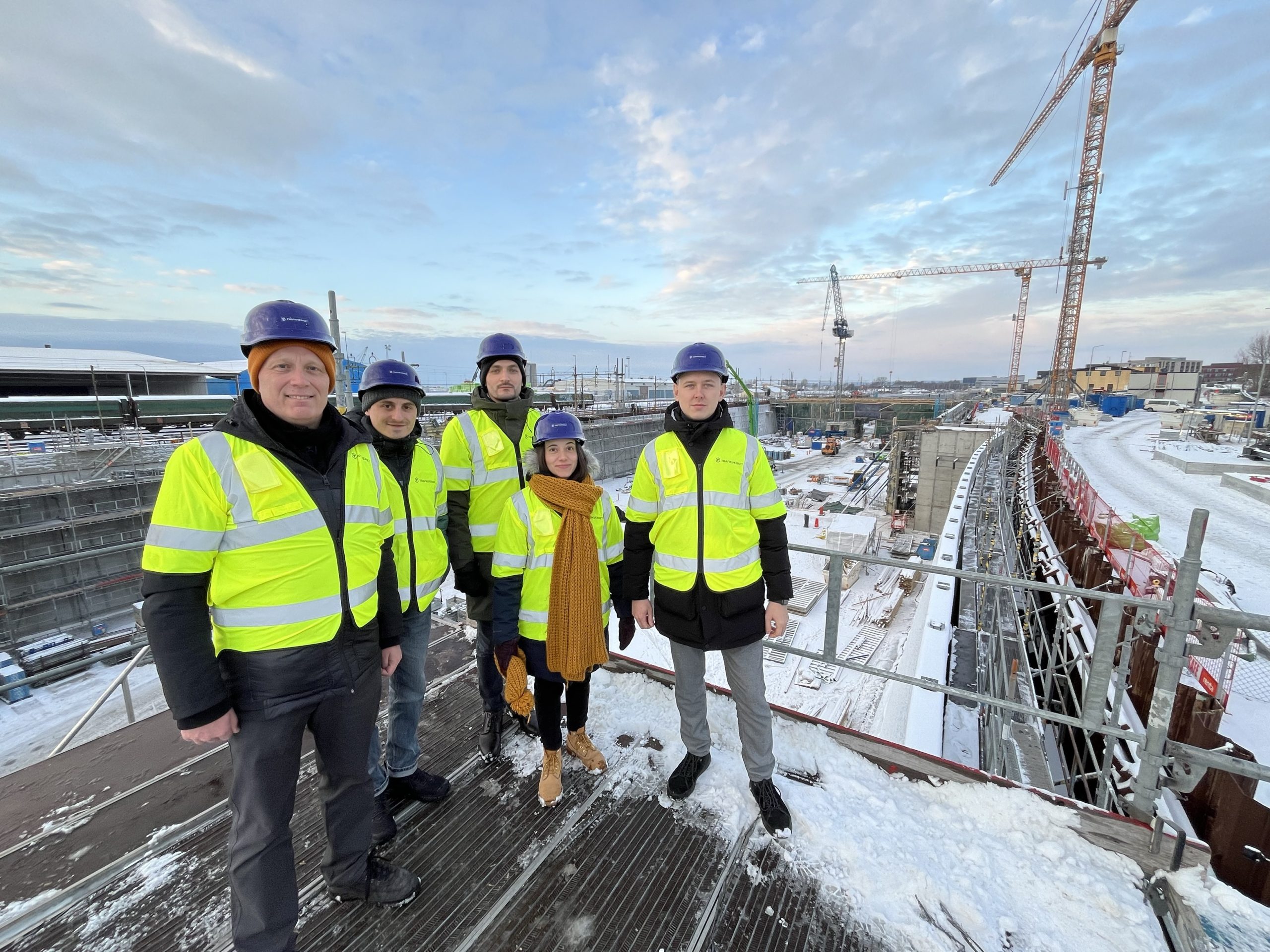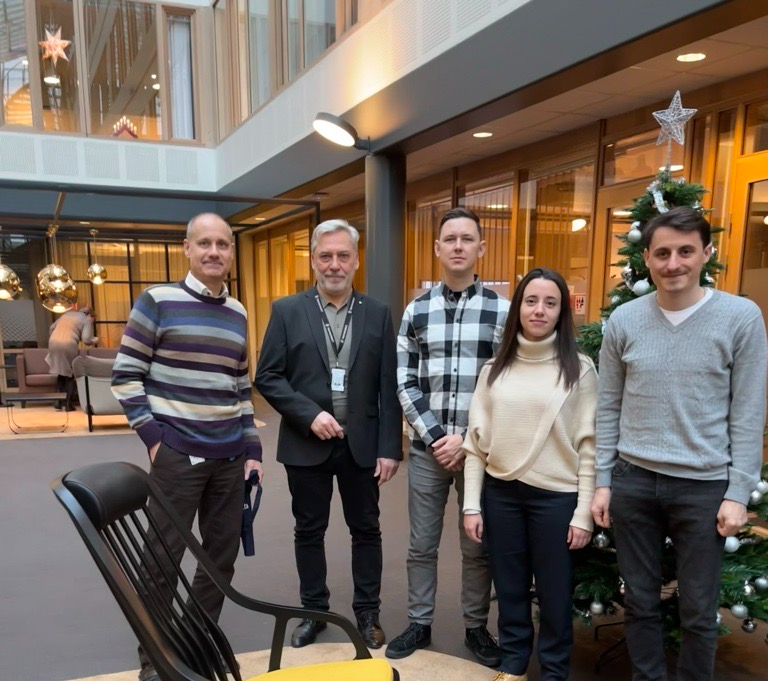December commenced with an international best practice benchmarking visit to Norway and Sweden from 5 – 8 December 2023, as part of Rail Baltica international promotion activities. The visit was planned at an expert level, focusing on railway infrastructure project management, construction site visits, discussions on construction material supply, and track engineering questions.
 The exchange started in Norway with a visit to the Drammern station reconstruction and the Follo Line project. The program, elaborated with Bane Nor, also included a discussion on construction material procurements and permitted the confirmation of the consolidated material approach chosen for the Baltic megaproject. Jānis Oga, Deputy Construction Materials Project Manager at RB Rail AS, concluded that “benchmarking the Norwegian experience will help us set better conditions for a consolidated supply of construction materials for the Rail Baltica project.”
The exchange started in Norway with a visit to the Drammern station reconstruction and the Follo Line project. The program, elaborated with Bane Nor, also included a discussion on construction material procurements and permitted the confirmation of the consolidated material approach chosen for the Baltic megaproject. Jānis Oga, Deputy Construction Materials Project Manager at RB Rail AS, concluded that “benchmarking the Norwegian experience will help us set better conditions for a consolidated supply of construction materials for the Rail Baltica project.”
The exchange continued with a visit to the Varberg tunnel project in Sweden and ended with an in-house workshop dedicated to track engineering and track alignment questions in cooperation with different department representatives at Trafikverket.
While some technical aspects of the visited projects differ from the Rail Baltica global project, as the Scandinavian landscape involves TBM tunnels, exchanges are nevertheless valuable on topics relevant to any infrastructure project. These include construction material supply, the impact of climate change and extreme climatic variations on infrastructure, large-scale project management, interfaces between multiple contractors involved in one project, subsystem deployment, railway maintenance, etc.
 Mihai Amariei, Railway Track Expert at RB Rail AS, reflected on the gained experience: “I am genuinely impressed with Norway’s and Sweden’s railway projects from an engineering point of view. The precise planning, innovative design, and efficient execution of these projects show a commitment to advancing transportation infrastructure. The integration of the latest technologies and sustainable practices is impressive, demonstrating a forward-thinking approach that can show results even 50 years from now. The collaborative efforts between engineers and planners have contributed to the success of these projects. Overall, it’s inspiring to see the positive impact on connectivity and sustainability that these railway developments bring to the region.”
Mihai Amariei, Railway Track Expert at RB Rail AS, reflected on the gained experience: “I am genuinely impressed with Norway’s and Sweden’s railway projects from an engineering point of view. The precise planning, innovative design, and efficient execution of these projects show a commitment to advancing transportation infrastructure. The integration of the latest technologies and sustainable practices is impressive, demonstrating a forward-thinking approach that can show results even 50 years from now. The collaborative efforts between engineers and planners have contributed to the success of these projects. Overall, it’s inspiring to see the positive impact on connectivity and sustainability that these railway developments bring to the region.”
The program for the experience exchange was developed in close cooperation with Bane Nor and Trafikverket. Rail Baltica’s international best practice benchmarking initiatives strongly echo the ideal of European added value in projects across Europe and are carried out with the goal of fostering the aim to reach an integrated, efficient, multimodal, and high-quality European transport network.
